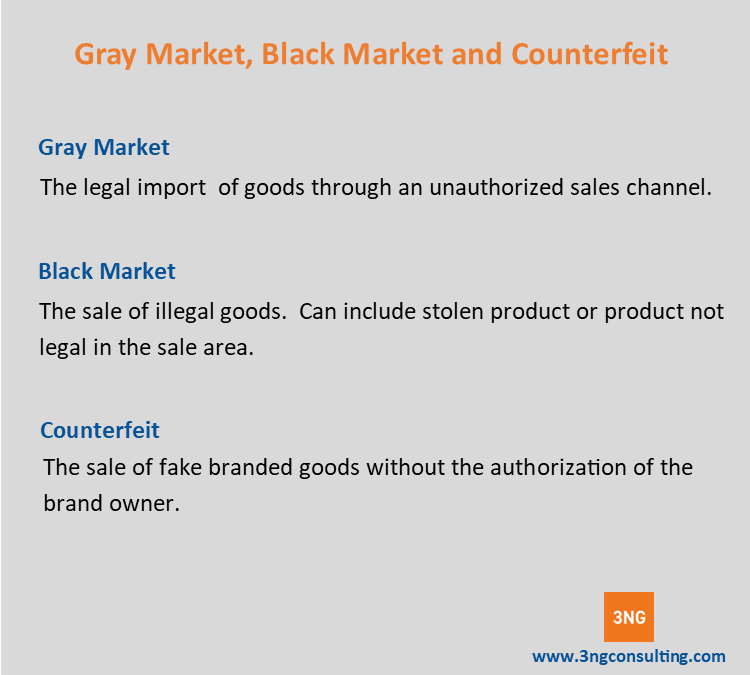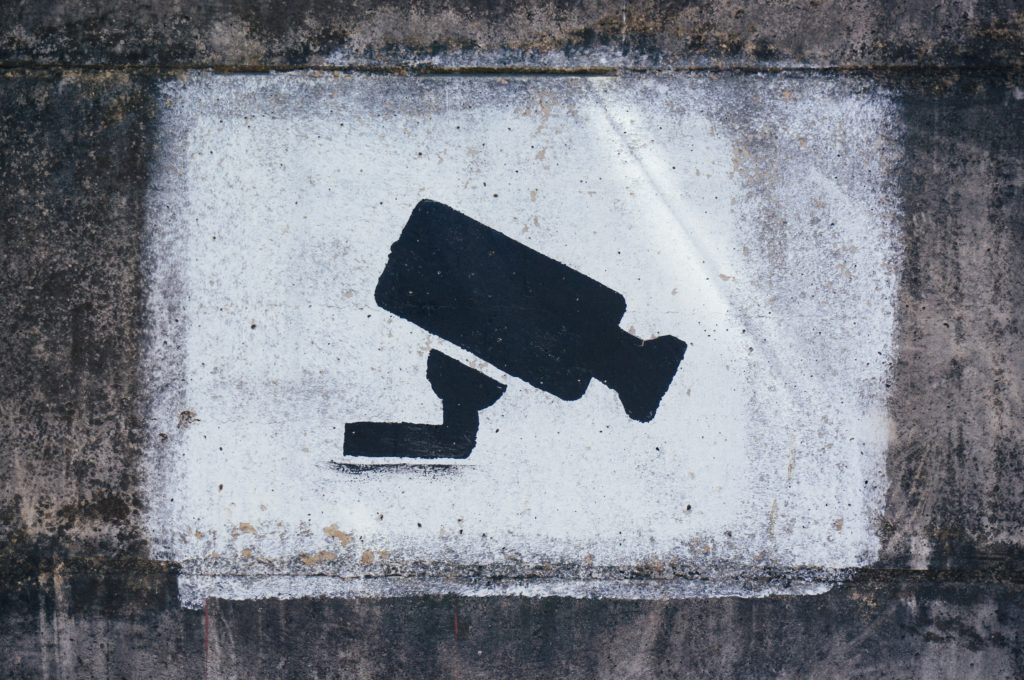Gray market goods are legally branded merchandise resold through unauthorized channels, while black market is the sale of stolen or counterfeit goods. The difference between the two comes down to whether the brand holder was legally compensated in for the use of their brand and the sale of the product.
The primary difference is that gray marketing is a legally protected activity while the sale of black-market goods is a crime. The following examples can help clarify the difference.
- Black Market: Black market is the illegal sale of product. So, anyone who sells stolen merchandise or counterfeit goods, is guilty of selling black market merchandise.
- Counterfeit: Counterfeit is the unauthorized use of a brand in the sale of goods or a service. For example, the sale of fake Genuine Toyota parts is counterfeiting.
- Gray Market: Gray marketer involves legally purchasing a product in one location or sales channel and reselling it in another location or outlet. So, an importer who buys Genuine Toyota Parts in Mexico and ships them to the United States without authorization from Toyota is gray marketing.
Gray Market Definition
By definition, grey market (or Parallel importing) is a distributor legally purchasing branded goods in one market and then reselling those goods in a parallel market. Since the brand holder was the first to sell the merchandise, most governments view gray marketing as a legal activity.
So, if you go to Mexico and buy a truckload of Mexican soda and import it to the United States without a distributor agreement, you are a gray marketer.
The causes of gray market are:

- A market is under-served by authorized distributors
- There is a large price disparity between markets. This leads innovative distributors to buy cheap product in one country and sell it in another country where it’s more valuable.
Gray Marketing is not always bad for a brand holder. Parallel importers often provide goods to underserved markets and can even create demand in markets that the manufacturer does not actively pursue.
In some cases, the brand holder may choose to ignore the parallel import activity or build an authorized supply chain once the new market is established.
Black Market Definition
Black marketing is the illegal sale of goods. There are 3 primary forms of black marketing. These are:
- The sale of stolen goods
- The sale of illegal goods
- The manufacture and sale of counterfeit items
Selling Illegal Good
Gray marketers sell goods that are legal to import and sell, black marketers sell goods that are illegal to purchase. For example, the illegal sale of guns, illegal drugs, fireworks and some types of alcohol are the sale of black market illegal goods. This is true even if the goods were purchased in a location where those products are legal.
For example, a person who buys a truckload of fireworks in Texas and sells them in California is transporting and selling black market fireworks.
Counterfeiting
Counterfeiting is trademark infringement and is the unauthorized branding of knock-off or patented goods. This practice is only illegal if the goods are branded without the authorization of the trademark owner. Counterfeiting is brand abuse and counterfeit enforcement can be pursued by law enforcement or the trademark owner.
So, a company that makes knock off starter motors is considered to be an aftermarket manufacturer. However, if that manufacturer applies a manufacturer brand to those starter motors, they are counterfeiting.
Brand Protection Strategies
The advent of online marketplaces have increased the reach and damage that can be caused by Counterfeiting and gray market. So, companies are investing more heavily in brand protection technology and teams to battle bad actors.
Strategies pursued by brand holders include monitoring social media marketplaces for the sale of counterfeit parts. Forming trade associations to combine resources and working closely with law enforcement to arrest and prosecute people who sell counterfeit products.
How 3NG Consulting Can Help
Our team at 3NG Consulting has supported some of the largest companies in the world in the pursuit of gray market and counterfeit parts. Our philosophy is to help your company pool your resources with similar manufacturers to pursue bad actors.
We also offer brand protection services to help your team build an effective gray market strategy. This starts with the construction of tools to track gray market imports and culminates with distributor contract enforcement. So, call us today to learn how we can help.






